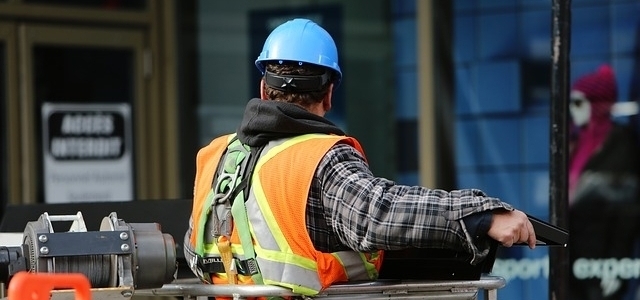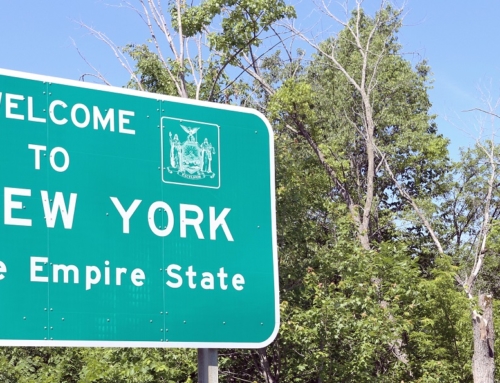Independent contractor drivers in Seattle for services such as Uber and Lyft can now organize thanks to a City Council vote on Monday. Separately, a federal judge in California increased the number of independent contractor drivers who can take part in a lawsuit against Uber in which the drivers claim they were misclassified as independent contractors.
The developments point to ongoing scrutiny of the gig economy’s use of independent contractors.
Under the Seattle measure, independent contractor drivers who work for the same company can now pursue unionization under a new law unanimously approved by the Seattle City Council. The bill focuses on online ride-sharing platforms such as Uber and Lyft as well as taxi companies.
Experts say the new rule adds to the patchwork of rules and regulations that users of independent contractors must follow.
“This is just another example of how current state and federal labor laws do not keep pace with the new innovative labor models that are becoming commonplace in the 21st century economy,” said Bryan Peña, VP, Contingent Workforce Strategies and Research at Staffing Industry Analysts.
“Unfortunately we can expect more and more local activist governments to similarly address the perceived exploitation of independent contractors and freelancers with these sorts of laws in lieu of state or federal action,” Peña said. “Companies that rely on these types of contingent workers will be forced to deal with a patchwork of rules and regulations that may make some types of work arrangements simply too cumbersome to consider.”
According to the city of Seattle, it will certify organizations as eligible driver representative organizations. Such organizations will be able to receive lists of eligible drivers from companies such as Uber and Lyft in order to organize the workers. The city would review any collective bargaining agreements.
“We’ve heard from Seattle drivers making sub-minimum wage, and companies like Uber have turned a deaf ear to their concerns,” said City Council Member Mike O’Brien, who co-sponsored the legislation with City Council Member Nick Licata. “This bill was only introduced out of necessity after witnessing how little power drivers themselves had in working for a living wage. This is groundbreaking legislation, and I am proud Seattle is continuing to lead the nation in advancing labor standards for our workers.”
Seattle isn’t the only place considering new rules to help gig economy independent contractors organize. One lawmaker in California is weighing an idea as well, the Los Angeles Times reports.
Meanwhile, also in California, a new ruling means more drivers will be eligible to take part in a class action lawsuit against Uber where drivers claim they were wrongly classified as independent contractors. However, Uber has already appealed the ruling — and taken steps to update its driver contract language.
In the lawsuit, Douglas O’Connor et al v. Uber Technologies Inc., Judge Edward Chen ruled Dec. 9 that drivers who signed contracts with Uber that had clauses calling for arbitration on an individual basis could still take part in the class action. The federal judge ruled the individual arbitration clause in the Uber contract was not enforceable because the contract language ran afoul of the California Private Attorney General Act.
An earlier decision by Chen had allowed only drivers who had not signed agreements with individual arbitration clauses — or who had opted out of such clauses. The earlier ruling would have reduced the number of drivers in the class to fewer than 15,000 from the initial projections of 160,000, according to an Uber blog post.
Plaintiff’s Attorney Shannon Liss-Riordan told Staffing Industry Analysts that the exact number of drivers that will be added as a result of Dec. 9’s new ruling is unknown, but the number will be in the thousands.
Liss-Riordan said the move is a significant development in the case, which is set to go to trial in June.
Uber has already filed an appeal over the Dec. 9 decision.
“Nearly 90% of drivers say the main reason they use Uber is because they love being their own boss,” according to a statement by an Uber spokesperson to Staffing Industry Analysts. “Drivers use Uber on their own terms; they control their use of the app along with where and when they drive. As employees, drivers would lose the personal flexibility they value most — they would have set shifts, earn a fixed hourly wage, and be unable to use other ridesharing apps.”
Some drivers who worked for third-party entities or did so as a corporation are still not allowed to take part even after the ruling on Dec. 9, including one of the three named plaintiffs in the case, Thomas Colopy. Also excluded from the case, is Barbara Berwick, who sought reimbursements from the California Labor Commissioner.
In addition, Uber moved to change drivers’ contract language in order to provide for only individual arbitration — instead of court hearings that could involve class actions suits. The new contract language went out Friday, and the plaintiffs’ attorney already filed court motion to prohibit the new language from taking effect.
The plaintiffs’ attorney argued the updated language caused confusion with 100 to 200 Uber drivers calling the attorney’s office in the days after the new language was released, according to court filings.
Plaintiffs’ counsel has asked the court to prohibit enforcement of the agreement and to prohibit Uber from communication with class members.
“By distributing a new arbitration agreement within days of this court’s ruling on class certification, Uber has potentially tricked thousands of class members into being required to arbitrate their claims and effectively opting out of the class action, without even realizing that they are doing so,” according to a filing by the plaintiff’s attorney. “Uber’s agreement mentions nothing about class certification and makes only passing reference to the O’Connor case, buried deep in its lengthy contract (that is once again only visible in most cases by clicking on a hyperlink on a phone).”
In a letter to plaintiff’s counsel, Uber attorney’s argued they brought the idea of the new wording before the court in a separate case where drivers claim they were misclassified as independent contractors — in a hearing on Dec. 10. That other case is Del Rio v. Uber Technologies Inc.
The Uber attorney’s letter also said the company doesn’t plan to enforce the new language in the O’Connor case.
“Moreover, Uber does not intend (and has never intended) to invoke the Technology Services Agreement’s arbitration provisions vis-à-vis members of the certified O’Connor class with respect to any claims and damages that the court has already certified for class treatment, up to and including the date of certification, which preceded release of the new Technology Services Agreement,” according to a letter from Uber’s defense counsel.
The court approved an emergency motion by the plaintiffs’ attorney to take up the issue of Uber’s new contract language on Dec. 17.
Uber’s case isn’t the only one involving drivers saying they are employees, not independent contractors. Oregon’s top court ruled some cab drivers were not independent contractors in a decision last week.
Other states, meanwhile, have passed or are considering legislation in favor or IC classification for Uber and similar drivers. State legislators in Ohio and Florida are considering regulations governing ride services that would designate all drivers as independent contractors. North Carolina, Arkansas and Indiana already require the contractor designation of such drivers.









